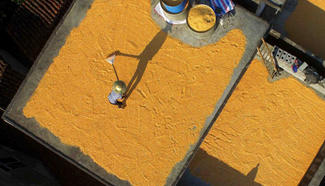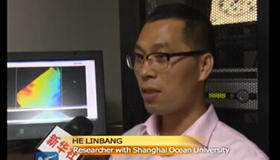CANBERRA, July 26 (Xinhua) -- Australian scientists are a step closer to finding a cure for heart disease, after they uncovered new insights into how the human genome performs with the help of proteins which temporarily store genetic information.
Scientists at the Australian National University (ANU) found that by looking into how the genome interacts with the RNA-binding proteins - temporary copies of genetic information stored in DNA - scientists could gain knowledge of how the body would be affected by heart disease.
Lead researcher Professor Thomas Preiss from The John Curtin School of Medical Research at ANU said the insight would give his team information on how to best approach tackling heart disease.
"In studying how RNA-protein interactions govern genome function in the heart, we saw potential for both the generation of knowledge and ultimately the development of new therapy," Preiss said in a statement released on Tuesday.
"So we endeavored to establish a collection of RNA-binding proteins that are active in heart muscle cells."
Heart disease is the leading cause of death worldwide, and kills one Australian every 27 minutes, but ANU researcher Dr Yalin Liao said the number of deaths could decline across the world if further studies about the function of the RNA-binding proteins are carried out.
He said now that other avenues of research had been opened up, a cure for heart disease could one day be on the cards.
"We started with this project thinking that we will find new proteins that help the RNA to function. But we are now also considering that in some cases there could be RNAs that help the protein to function," Liao said.
"Our compendium of RNA-binding proteins in the heart will provide many new angles for research and could ultimately lead to a cure for heart disease."









